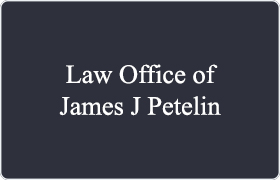 Rancho Cordova Juvenile Law Lawyers, California
Rancho Cordova Juvenile Law Lawyers, California
Sponsored Law Firm
-
 x
x

Click For More Info:
-
Law Offices of James J. Petelin
1550 Humboldt Road, Suite 4 Chico, CA 95928» view mapCriminal Defense Effective, Client-Focused Representation
Call today to discuss your case.800-749-8150
Warning! No lawyers found in this specified area.
Lawyers
1-0 of 0 matches



 AboutLaw Offices of James J. Petelin
AboutLaw Offices of James J. Petelin Practice AreasSpecializations
Practice AreasSpecializations